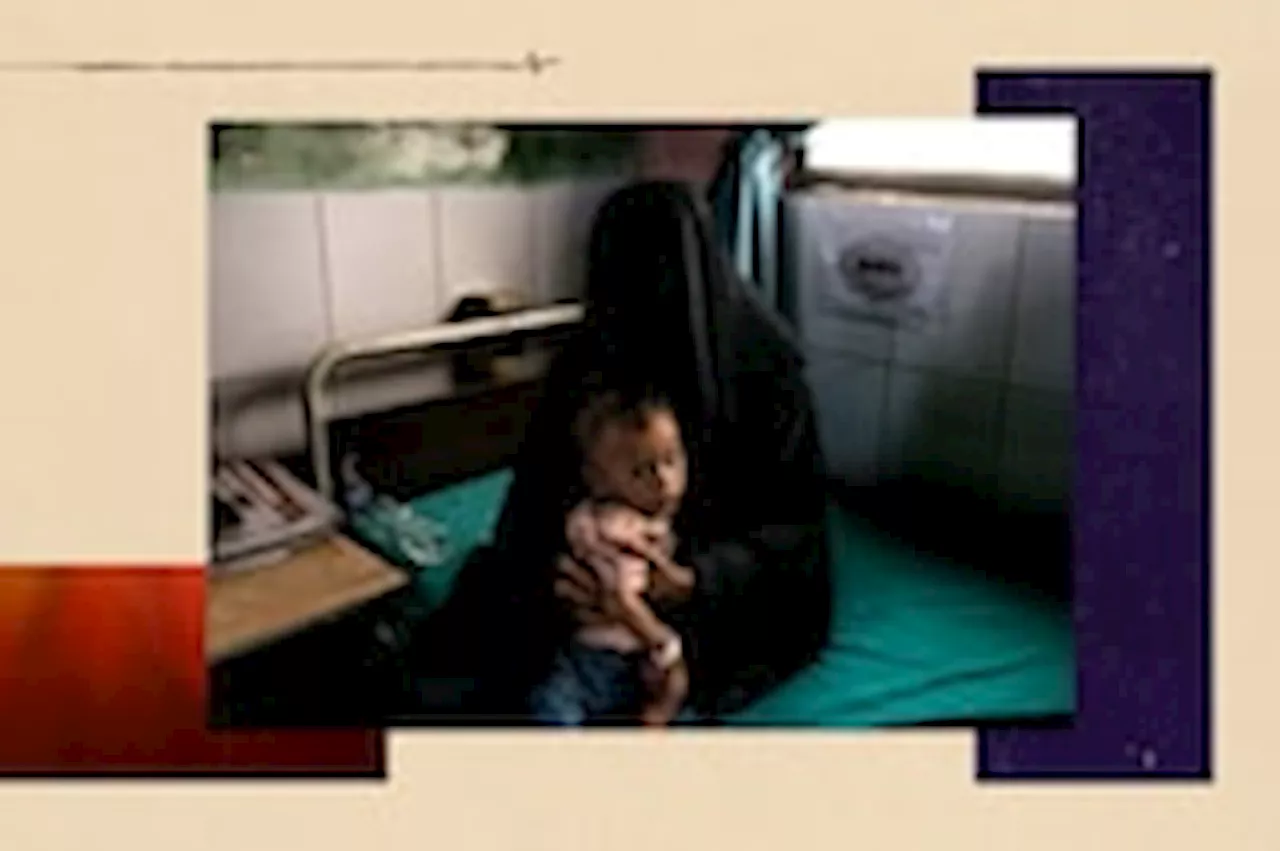Malnourished children in war-torn Yemen struggle to survive as temperatures rise. In the city of Hodeida, climate change and hunger converge in brutal ways.
Kareen Fahim, Ali Al-Mujahed and Lorenzo Tugnoli traveled through parts of Hodeida province in northwestern Yemen in August to report on the convergence of extreme heat and hunger.There are never enough hospital beds for all the malnourished children across this poor and parched province. But this summer, even more families than usual had to be turned away from the bursting wards.
Hodeida shows how climate change and hunger are converging in devastating ways. Doctors here say extreme heat is threatening underfed babies and children with ravaged bodies and weakened immune systems. Their experience aligns with emerging research on the direct link between hotter temperatures and worsening malnutrition in some of the world’s poorest countries. The findings are alarming for this part of Yemen, already wracked by war, widespread poverty and suffocating summers.
Shopkeepers and trinket vendors scraping by on $6 a day are among the few on the streets from 9 a.m. to 3 p.m., when scorching heat makes Hodeida feel like a ghost town. Hundreds of thousands of people were killed, many from indirect effects of war like hunger, the United Nations said. Millions were displaced. Aid agencies scrambled to stave off famine amid shortages of food and fuel. Diseases like cholera that had been all but eliminated made a resurgence.
Portraits of Houthi leaders are displayed in a government building in Hodeida. FROM TOP: A poster of a Houthi martyr, from the group that controls Yemen’s government, in an area of Hodeida damaged by fighting. Portraits of Houthi leaders in a government building in Hodeida. A man at the end of the hot day.
“Now is not really the time to take the foot off the gas in Yemen,” said Richard Ragan, the agency’s Yemen representative. Systems to replace the missing aid, which would require a functioning government, “aren’t yet in place.”Doctors in Hodeida say extreme heat is threatening children with weakened immune systems.
Mothers brought their children to the clinic when they developed fevers, had diarrhea or suffered from loss of appetite, said Makki, the nurse. “Many cases go home because there is no room for them.” John Hoddinott, a professor at Cornell University and one of the study’s authors, said in an interview, “The part we’re certain about is that there is a causal relationship between extreme temperature spikes and adverse nutritional outcomes.” Less clear, he added, were the precise mechanisms at play.
High temperatures could play a “detrimental role” for children suffering from electrolyte disturbances: susceptible both to diarrhea, which can cause dehydration, and unable to easily ingest water, which was dangerous for their weakened hearts. Doctors said the infant had cerebral palsy, which made it difficult for him to eat. He was vomiting and had a fever and diarrhea, doctors said.
The road leading to Hodeida city provides a glimpse of Yemen’s degraded state. Dust storms whip through farmland that is being invaded by waves of desert sand. Dead cows lie on the side of the road, a few miles from a neighborhood destroyed by fighting during the conflict. The area has been emptied of residents but is still littered with unexploded ordnance, city officials warn.
The work was increasingly exhausting, he said. “This year is hotter than last year. And it’s tiring to stay until 12.” “It’s more tiring now, more than normal,” said Eliyas Abdu Saleh, 35, who sat in a boat, having just returned from the sea. “In the past I used to stay out three days. Now I stay two days.”
“There is a lot of suffering because of the heat,” said Ahmed al-Bishri, Hodeida’s deputy governor, in an interview in his office. “Every year the heat has gone up. It’s affecting the poor people, the simple people,” he said.
United States Latest News, United States Headlines
Similar News:You can also read news stories similar to this one that we have collected from other news sources.
 N.J. couple found with malnourished, dead dogs facing more charges, police sayGet the latest news from Burlington County from The Star-Ledger, find Burlington County real estate listings and talk about local news on NJ.com.
N.J. couple found with malnourished, dead dogs facing more charges, police sayGet the latest news from Burlington County from The Star-Ledger, find Burlington County real estate listings and talk about local news on NJ.com.
Read more »
 Iran's allies in Iraq, Yemen threaten U.S. over intervention in IsraelSenior Iraqi and Yemeni leaders aligned with Iran and in charge of heavily armed groups have threatened to target U.S. interests if Washington intervenes to support Israel in its conflict with Hamas in Gaza.
Iran's allies in Iraq, Yemen threaten U.S. over intervention in IsraelSenior Iraqi and Yemeni leaders aligned with Iran and in charge of heavily armed groups have threatened to target U.S. interests if Washington intervenes to support Israel in its conflict with Hamas in Gaza.
Read more »
 N.J. woman who kept sick cats, dog malnourished in filthy home is indicted on animal cruelty chargesGet the latest news from Atlantic County from The Star-Ledger, find Atlantic County real estate listings and talk about local news on NJ.com.
N.J. woman who kept sick cats, dog malnourished in filthy home is indicted on animal cruelty chargesGet the latest news from Atlantic County from The Star-Ledger, find Atlantic County real estate listings and talk about local news on NJ.com.
Read more »
 Pair arrested at New Jersey home with dozens of dead dogs facing new chargesAuthorities in New Jersey say more charges are expected to be brought against two people who are believed to have run an illegal animal rescue at a home where dozens of pets were found dead or malnourished.
Pair arrested at New Jersey home with dozens of dead dogs facing new chargesAuthorities in New Jersey say more charges are expected to be brought against two people who are believed to have run an illegal animal rescue at a home where dozens of pets were found dead or malnourished.
Read more »
 On this day in history, October 12, 2000, terror attack on USS Cole kills 17 American sailors, wounds dozensThe USS Cole was attacked by al Qaeda at port in Yemen on Oct. 12, 2000, killing 17 sailors and wounding dozens of others. It proved a portent of the 9/11 attacks 11 months later.
On this day in history, October 12, 2000, terror attack on USS Cole kills 17 American sailors, wounds dozensThe USS Cole was attacked by al Qaeda at port in Yemen on Oct. 12, 2000, killing 17 sailors and wounding dozens of others. It proved a portent of the 9/11 attacks 11 months later.
Read more »
